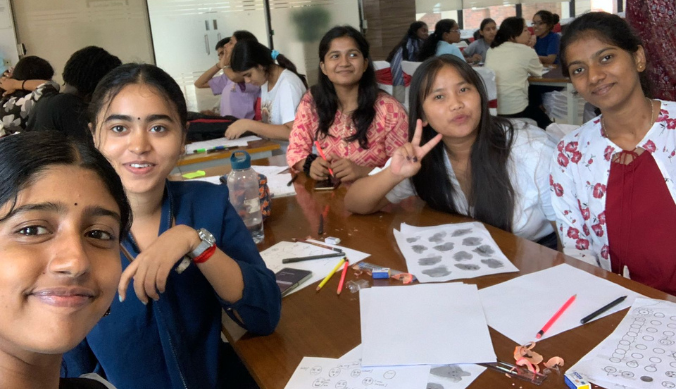Bhaṭṭa Jayanta’s Blossoms of Reasoning (Nyāyamañjarī)
Professor Alex Watson's work involves re-editing neglected manuscripts of Bhaṭṭa Jayanta’s texts to correct errors, producing annotated English translations of untranslated sections, and analysing Jayanta's philosophical thoughts within the broader context of Indian and contemporary philosophy.
Bhaṭṭa Jayanta was a poet as well as a philosopher. His work, Nyāyamañjarī “Blossoms of Reasoning” (890 CE), written in Kashmir, has been described as one of the three greatest works of Indian Philosophy. What sets “Blossoms of Reasoning” apart is the philosophical brilliance of Jayanta, the beauty of his Sanskrit and his ironic sense of humour. But only half of it has so far been translated into English, However, the existing printed editions also contain numerous errors that have arisen from scribal miscopying or careless printing.
Alex Watson, Professor of Indian Philosophy, Ashoka University delved into the world of this understudied genius. He aimed to improve all the existing editions of his work and translate them into English for the first time.
He worked to reveal his thoughts in all their glory to other specialists and introduced them to non-specialists. He takes various chunks of Bhaṭṭa Jayanta’s voluminous work and does three things: Re-edit the Sanskrit with the help of several manuscripts that have been neglected by previous editors. This enables him to diagnose and remove many errors in the previous editions, thus taking us closer to what Jayanta actually wrote. Produce annotated translations of parts of the work that have not yet been translated into English. Write articles analysing the philosophical thoughts of Jayanta, setting them in the wider context of Indian philosophy, and revealing their value for contemporary philosophy. Professor Watson has so far published eleven articles on this topic, with several more in progress, and many planned for the future.
The published articles include editions, translations, and philosophical analyses of parts of the work concerned with: the philosophy of language, perception, the status of the external world, the existence of God, the existence of the ātman (self), and other technical topics in Indian metaphysics and epistemology. This research conducted by Professor Watson has significantly contributed to Sanskrit philology. It demonstrates the deficiencies in all previous editions of Jayanta’s magnum opus and highlights how the use of previously neglected manuscripts and the collection of parallel passages from a wide reading of Jayanta’s works allow us to recover what he actually wrote. Professor Watson’s work has also impacted the history of Indian philosophy; the annotated translations and philosophical analyses have provided new insights into Indian ideas and enabled a more accurate reconstruction of the wealth and sophistication of pre-modern Indian thought.
Edited by Dr Yukti Arora and Kangna Verma (Academic Communications, Research and Development Office, Ashoka University)
Study at Ashoka













